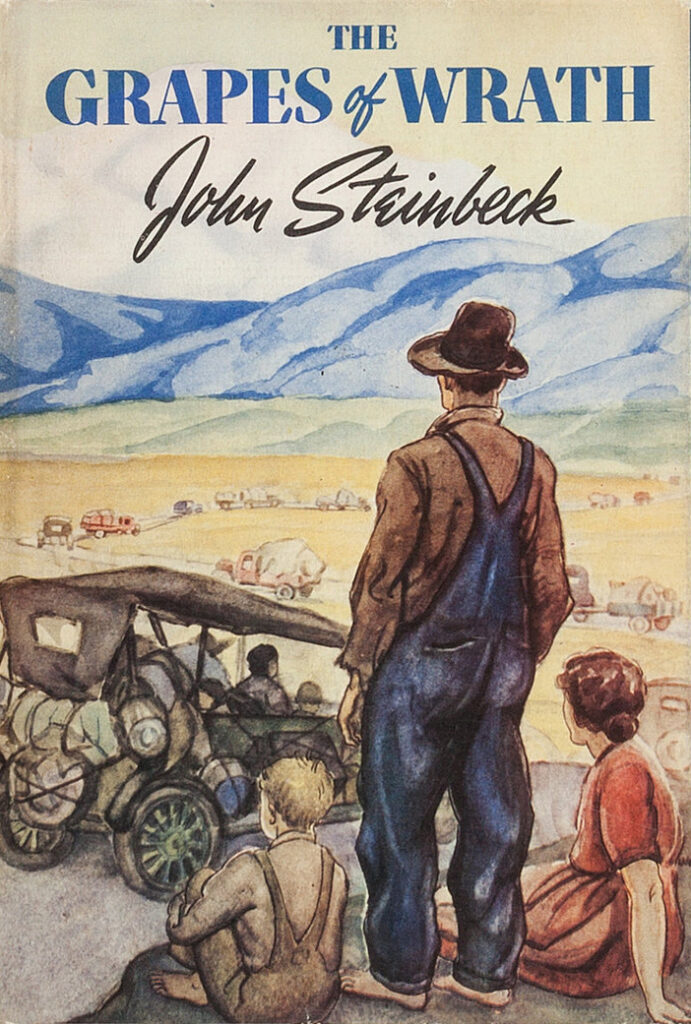
…today’s secret…The Grapes of Wrath.
In college I used “Cliff Notes for Dummies” to fill my reading requirement of Steinbeck’s classic 1939 novel The Grapes of Wrath.
I later discovered that I was the dummy for missing one of the most memorable endings in American literature.
I remember slamming the book down and pushing it away after reading Grapes’ last chapter for real.
I sat stunned in silence, never feeling like this at any book ending.

People who read Steinbeck’s ending before the book was published urged him to change it. He refused.
The movie was also released in 1939 and the film version didn’t come close to touching Steinbeck’s printed ending. Hey, it was 1939.
Whether you like Steinbeck’s writing or not, you can’t deny he drags you into his story.
You were with the Joad family as they migrated from dust bowl Oklahoma to sunny California on rumors of work. New life thing. Second chance. It was the late 30s. The country had been wallowing in the Great Depression for years. Life was miserable. Everything went from bad to worse.
Thousands of Americans were dying without hope.
Steinbeck sucked you into suffering with Tom, Ma, Pa, Uncle John, Rose Sharon…you could feel the country’s sorrow, the rawness of life, smell the Hoovervilles…and wonder if you had it in you to beg someone to pick their fruit so you could feed your family that night.
By Chapter 28 half of the family had either runaway or were dead. At the beginning of Chapter 30 you knew the end was only a thousand words or so away and there was going to be no happy ending for you.
“Please Mr. Steinbeck, put these poor souls out of their misery.”
But no. Steinbeck chose to pour it on instead.
It had been raining for days. The four family members left were huddled in an old train boxcar. No money. No food. No hope of getting either. Rose Sharon had gone into labor and her baby was born dead, it’s body now floating down the flooded field. The boxcar itself began flooding and the family was forced to walk in a drenching sideways downpour to find other dryness.
“Steiney, kill em’ please. End it for them. End it for me.”
They saw an old barn and inside they found a young boy with his sickly father. The father had given what food he had to the son and was now lying on the floor, dying of starvation.
Ma and Rose Sharon looked at each other as in agreement. No words. Just a slight nod of the head. Ma moved everyone away as Rose Sharon quietly laid down beside the starving man. The last line of the book read…
“She looked up and across the barn and her lips came together and smiled mysteriously.”
My image of Rose Sharon nursing a starving stranger with her breast milk so he could survive shocked me.
How could she and the family continue to reach out and help others when things in their own lives had been and were still so hopeless?
Rose Sharon’s decency demonstrates the innate kindness that lives in us. Yes, there are selfless people in this world. Yes, one’s life can be devoted to others, despite one’s own despair.
It was over 80 years ago that Rose Sharon gave what she had to someone she didn’t know for a reason she wasn’t asked.
It might be worthy to revisit her grace today.
